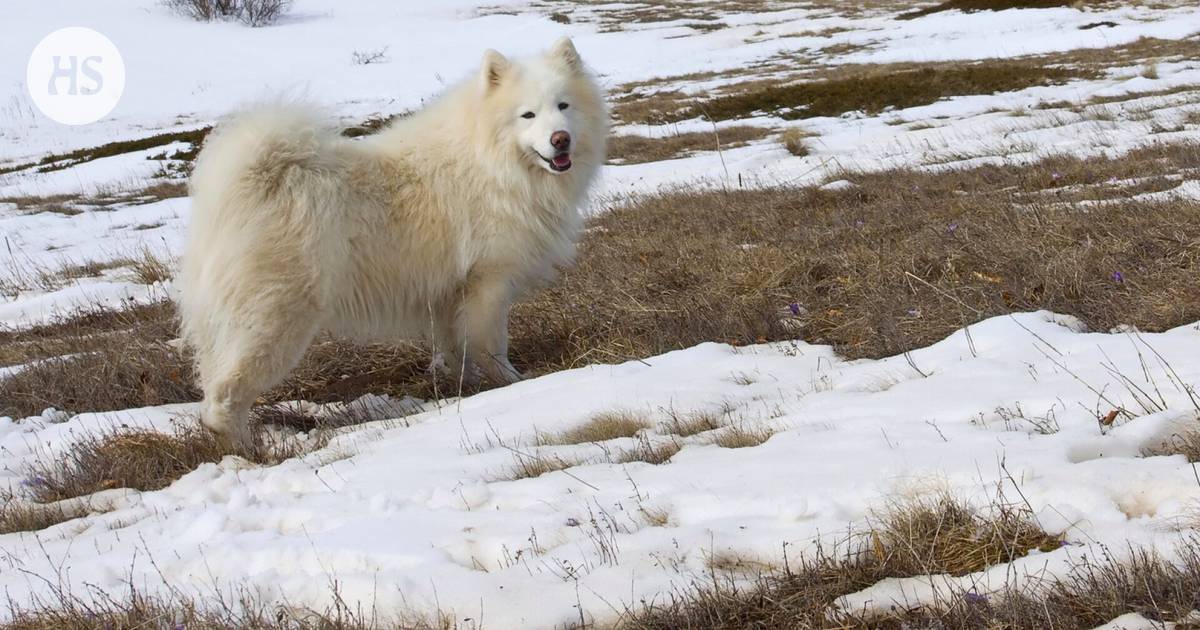Uncollected waste spreads parasites, bacteria and viruses. Some can also infect humans.
Dogs to investigate pathogens in feces Thomas Grönthalin even my own pet once got sick from water that was apparently contaminated with dog waste.
Her shiba played in the dog park where there was standing water and probably got giardia from it. This intestinal parasite can cause diarrhea, especially in young dogs.
“There was no poop in that puddle. Especially when the snow melts and if there is poop in the upper stream with an exceptionally high amount of giardia, pathogens flow down and can accumulate in the puddle below,” says Grönthal, who works as a specialist researcher at the Food Agency.
According to him, dog parks are particularly risky places for faecal infections, especially if waste is not collected.
”
Like Giardia, Intestinal Canine is a parasite that can be spread through dog poop. Intestinal worms can also infect humans.
However, dog parasites are rare in Finland.
Dog poop also spreads bacteria that can make humans sick in addition to dogs.
The infection route is the same as for parasites. In humans, they are transferred from feces or soil contaminated by feces, animal fur or equipment, for example, through the hands to the mouth. With dogs, the route is more direct.
“Dogs sniff poop outside. If they also move to the tasting stage, infection is very possible if there happen to be these bugs in the feces.”
Symptoms causative faecal bacteria are, for example, salmonella, campylobacter and yersinia bacteria, which are the usual causes of food poisoning.
“They typically cause diarrhea or stomach cramps,” Grönthal says.
However, he reminds us that in the worst cases, food poisoning bacteria can cause a fatal infection in a person.
“Of course, they are extreme cases. Generally healthy people don’t get these kinds of problems, but the elderly and people who have an immune deficiency due to some illness can get a pretty nasty infection.”
”
“The situation with infectious diseases in dogs is good in Finland compared to many other countries.”
Food poisoning bacteria according to Grönthal, they are also very rare in dogs. Instead, multi-resistant bacteria that are resistant to antibiotics are more common.
“In Finland, about five percent of dogs with healthy intestines carry such resistant bacteria in their intestines without symptoms. When they end up in a wound or urinary tract, they can cause an infection that is more difficult to treat than a bacteria that is sensitive to antibiotics.”
Grönthalin there are no known studies that would tell how many infections occur from dog poop to other dogs or people in Finland.
“The situation with infectious diseases in dogs is good in Finland compared to many other countries. We don’t have an awful lot of these bacteria, let alone intestinal parasites.”
Dogs viruses do not spread to humans. Viral infections are also very rare between dogs.
“The most significant virus that spreads with feces is canine parvovirus. But luckily there is very little of that in Finland, because the rule of thumb is that almost all dogs in Finland are vaccinated and the vaccination includes the parvovirus.”
Pathogens is most abundant in diarrheal poop, the very stuff that is most difficult to remove.
“There’s no need to go and disinfect that pusiko’s base. As long as the majority is removed, it reduces disease pressure.”
